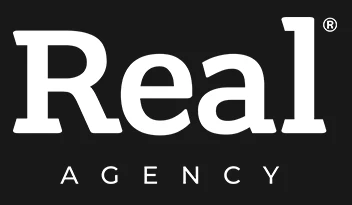Adapt Your Store During COVID-19
In recent weeks we’ve seen some dramatic changes in the eCommerce landscape. As an eCommerce agency, and an eCommerce retailer ourselves, we’ve faced our own challenges to remain available for our clients or customers and support them with their scaling up due to demand or winding down through diminishing sales.
I’ve thought to myself recently that “we’re all in this together” but having seen the robustness and preparedness of some retailers, but also the mistakes some have made, albeit many no fault of their own, I thought I’d share with you some reflection on the past few weeks and some thought for the future where we could collectively be better prepared for the unknown.
Supply Chain
Every retailer is different and the complexities of their supply chain are likely to be unique to each of them. Advertising your products, having traffic, visitors and a team to manage your orders is one thing, but not having products to sell is hugely frustrating. A robust supply chain with good relationships and various suppliers in different locations, perhaps internationally, will help protect your business from a starved or overstretched supply chain.
Some retailers get around this by having a consistent split of seller fulfilled products and drop ship products direct from suppliers. There are a number of eCommerce ERP and inventory management systems which can help facilitate this for you such as Linnworks, and Microsoft Dynamics to help you become more robust for the future.
Fulfilment
With a crisis such as the one we’re currently experiencing, maintaining staff health and wellbeing has meant many of you have closed your operations, and although you have stock, advertising and customers, you simply can’t get the goods out the door.
We’re lucky the UK government has considered couriers and delivery drivers essential to keep the country going, with the likes of DPD and Royal Mail upholding next day services and introducing “no contact delivery services”, but with many of your warehouse staff at home, you simply can’t dispatch your goods or services. Fulfilment as part of that delivery network has been allowed to continue serving its customer so if your eCommerce software or ERP automatically sent your orders automatically to a fulfilment centre you would still be dispatching orders and fulfilling your customer’s needs.
Marketing
The economic uncertainty has meant some companies are looking to reduce costs and review those sneaky subscriptions services you’d simply forgotten about. There’s no harm in being lean through these times, however, you should be aware of some of the benefits of continuing to market your business.
Our team has noticed that Amazon has dropped off PPC campaigns which has opened up opportunities to many SMBs which couldn’t compete with them before. As some industries are left with no option but to close warehouses, some can remain open, with less competition and sell to new audiences. If sales have slowed then rather than pause or stop campaigns which will be detrimental to the longterm visibility of the campaign, you could reduce budgets, tighten up generic campaigns, and consider products which might sell better in these circumstances. A new strategy is definitely needed during this time i.e. change your ad copy and ad extensions with new delivery lead times and that you are offering no contact delivery services. In the coming months, Google has announced they will credit Google Ads accounts for SMBs which qualify, so you may be eligible for this!
Also, investing in SEO now could see your organic rankings increase during these times and ultimately leave you in a stronger position when things begin to return to normality. SEO is the long game, so using this time to optimise your store and get one step ahead of your competitors could be a wise decision.
New Channels & Platforms
People are sharing more than ever and we have your attention on social media. Some retailers are using this as an opportunity to engage with audiences out of their normal circles via targeted products relevant to the current situation (home exercise, specialist food that lasts – energy bars, home improvement, ‘do it yourself’ products, etc).
Perhaps now is the time to up your organic posts on Youtube, Facebook and Instagram, look into social advertising options or and work with social influencers. Whilst traffic to your own stores might be slowing, you can be sure marketplaces like Amazon, eBay and Facebook are still getting huge volumes of traffic each day, so using your eCommerce software or ERP to push your products to these channels may give you the extra sales revenue you’re missing.
Closures
Due to any single or combination of factors above, some of our clients have chosen to remove buy buttons, redirect cart pages to a landing page with status messages or simply reduce stock to zero to stop customers ordering. In doing this there are some golden rules.
If you run any shopping PPC campaigns then you’ll need to keep your stock active as again this will have an effect on your visibility in future shopping campaigns, so setting stock to zero is not your best option. If you do set your stock to zero, make sure your platform maintains a live product URL otherwise you could see products hidden from Google’s organic crawlers. Be mindful of any redirects you put in place as these will need to be reverted when you resume normal service, so keep a list of anything you change. Google’s official advice is here.
Communication
If in doubt, over-communicate everything! Warning messages on your site about delivery disruptions, update sales order email templates to make customers aware of any delays or changes to your products or services, provide easy communication channels via email, telephone, WhatsApp, Messenger, live chat. As a customer, which we all are at some point, you’ll understand that if you’re kept informed it leaves you feeling more comfortable and reassured, as well as having compassion and understanding for the company in these difficult trading times. Being left in the dark just breeds confusion, distrust and unhappy customers.
Stronger
As we’re all adjusting to different ways of working and living at home when the dust settles the eCommerce sector will likely be the first to bounce back. We’re already seeing a big surge for retailers in video games, home and garden, specialist food and drink sectors, but whilst we all might be confined to our homes for a little longer, we’ll soon again start wanting more than our basic needs, with the least contact and minimal effort. This could be the final goodbye to the high street but it’s a new and exciting chapter for eCommerce. Stay well, become lean, aim to be efficient and we’ll weather this and any future storms ahead.
If we can help at all with any of the above suggestions, then please get in touch and we’ll be happy to help!


